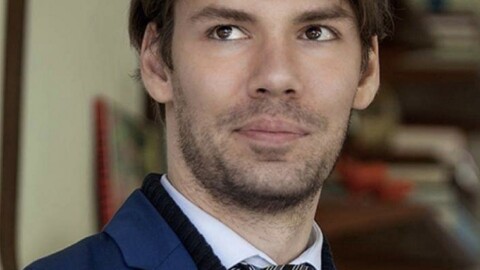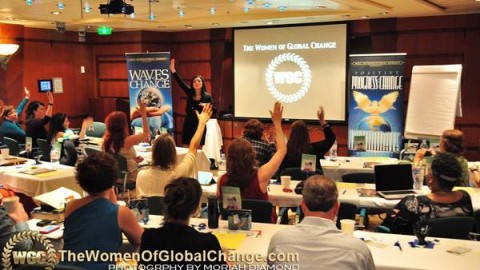Best Practices for Your Life
Most people I’ve met as an adult tend to consider their professional and personal life as two separate realms, each with a unique set of rules, responsibilities, and rituals for achieving fulfilment, reaching goals, and finding success. It’s an emotional, intellectual, and mental separation of church and state born from the long-held assumption that business is fundamentally different from day-to-day life away from the office. I’m here to say the opposite is actually true. We might call them by different names and view them through different prisms, but the strategies employed to create a successful company are the same ones we use to build a fulfilling private life. And that’s true regardless of nationality, background, or experience.
I grew up in Moscow, Russia. My family had enough money to always have food on the table and to buy me a backpack to go to school, but we weren’t rich, so I never learned or experienced the knowledge of money. I didn’t have any affluent friends. Coming to America as a young man changed a lot of things. For the first time, I was able to meet all kinds of people in a variety of careers and pick the circle I wanted to associate with. It was a different world.
Living in the United States was more than a culture shock; it was a professional head slap and wake-up call. There was nobody to guide me, so if I wanted to succeed, I couldn’t wait around for someone to take me under their wing. I had to learn about life and business on my own.I had to figure out how to become a strong leader and build my start-up,Argus Merchant Services, into a success. At the same time, I was looking for ways to improve relationships with people and better promote myself. It didn’t take me long to realise the answer to both sets of questions was one and the same. I needed to treat my life as a business because the two are inextricably interconnected.
Everything we do in our personal lives can be approached from a business perspective.To be successful and sustainable, every business needs a vision,a carefully curated culture, and best practices implemented by several different departments—marketing, sales, human resources, accounting, finance, research and development, etc.—structured to foster growth, achieve goals, and sustain success. By following that template—by being intentional—I could meet my objectives on all fronts.
For example, take sales. Selling isn’t just getting a client to buy your product. Everyone is a salesman; you are either selling your ideas or your beliefs.It’s a basic skill that applies to all facets of life, from asking for a raise to negotiating with your teen aged child to clean their room. Once you learn how to sell yourself, you unlock the power of possibility.
As a department, human resources—charged with recruiting, hiring, training, and development of employees—is vital because a business is only as good as its people. A company with enthusiastic, engaged, and effective workers has an automatic leg up on the competition. That same principle is true with us as individuals. If you only surround yourself with negative, unambitious, or envious people, they will hold you back.Motivational speaker Jim Rohn is famous for observing: You are the average of the five people you spend the most time with. By choosing positive, supportive, encouraging people, you will be more personally fulfilled and will have a strong support system for any endeavor you take on.
Another crucial life department is marketing. Just as you won’t bother to read a poorly designed, visually unappealing brochure or browse a bland web site, if you don’t market yourself properly through appearance, manner, and personality, nobody’s going to pay attention or take you seriously. That’s not just true with business associates; you won’t go on many dates either if you don’t put your best self forward.
Perhaps the most important department is research and development. All successful businesses spent a lot of time and resources on trying to get better. They never stop amassing data so that when something doesn’t work, they can pivot because they are prepared. The same is true in life. The moment you stop learning, you’re dead. It’s extremely important to keep improving your skills and adding to your knowledge every single day whether through education, experience, or even failure. If you consciously act on failure, you’ll be able to identify the reason things went wrong and analyse it to prevent the same failure from happening again in the future.
I make a point to understand the reasons behind every single time I don’t succeed, every single time I get rejected in life and in the business because it will make me stronger and a better leader, mentor, and person.
Ultimately, whatever you want to accomplish in life will benefit from utilising a business approach. If you don’t implement your personal best practices then it won’t happen. If you want opportunity, you have to create it; you must motivate yourself to improve and evolve constantly.
In short, once you start treating your life as a business, there are no limits to achieving success except those you impose on yourself.
Eugene Gold is the founder and CEO of Argus Merchant Services, which provides flexible credit and debit card payment processing platforms that helps clients reshape their company infrastructure and spur expansion. Argus has been ranked No.64 on the Inc. 5000 and been recognized on the Entrepreneur 360.












